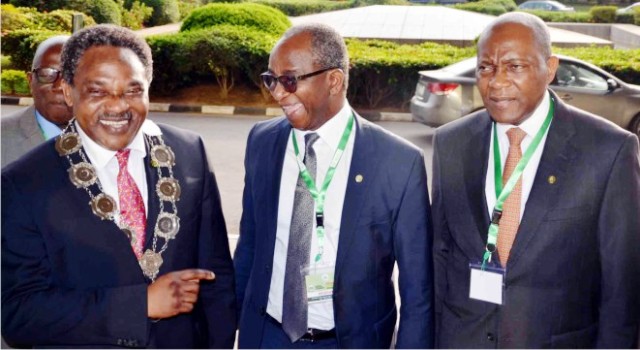Business
‘Refinery Produces 2.5 million Litres Of Petrol Daily’

The Managing Director of
the Warri Refining and Petrochemical Company, Engr. Solomon Ladenegan, yesterday, disclosed that the current production capacity of the refurbished plant has reached 2.5 million litres of Premium Motor Spirit (PMS) and 2.2m of kerosene per day.
Ladenegan made the disclosure during the commissioning of a community road constructed by WRPC at Ifiekporo, Warri South Local Government Area, Delta State.
He noted that though renewed militancy in the Niger Delta region had affected the company through attacks on oil facilities in the region which slowed down crude supply to the refinery, it had manage to increase production since it reopened.
Ladenegan told newsmen, “Militancy has not directly affected the refinery, but has only slowed crude supply. It’s not good for the refinery to be running and get shut down for 12 days for lack of crude, so we are dealing with these issues
“Currently we are able to produce 2.5million litres of petrol and 2.2million of kerosene daily, the plants are running and we are working to do more.”
He further called on the people where oil facilities are sited to protect such facilities to keep the refinery afloat as it was ready to contribute positively to host communities and promote peace.
“At this point, permit me to invite everyone to be our partners in our determination to add more value to the resources of this great country by efficiently operating the plant of WRPC. Let us act as one by promoting peaceful and cordial relationship”, the MD added.
Business
Nigeria’s ETF correction deepens as STANBICETF30, VETGRIF30 see 50% decline in a week

Business
BOI Introduces Business Clinic

Business
Dangote signs $400 mln equipment deal with China’s XCMG to speed up refinery expansion

-
Maritime13 hours ago
Customs Declares War Against Narcotics Baron At Idiroko Border
-
Maritime13 hours ago
Nigeria To Pilot Regional Fishing Vessels Register In Gulf Of Guinea —Oyetola
-
Maritime13 hours ago
NIMASA,NAF Boost Unmanned Aerial Surveillance For Maritime Security
-
Maritime13 hours ago
NIWA Collaborates ICPC TO Strengthen Integrity, Revenue
-
City Crime9 hours ago
NCSU Hails Fubara Over 2025 New Telegraph Man Of The Year Award
-
Maritime13 hours ago
NIMASA GETS NEW MARITIME GUARD COMMANDER,ADOKI
-

 Business13 hours ago
Business13 hours agoBOI Introduces Business Clinic
-

 Business13 hours ago
Business13 hours agoDangote signs $400 mln equipment deal with China’s XCMG to speed up refinery expansion

